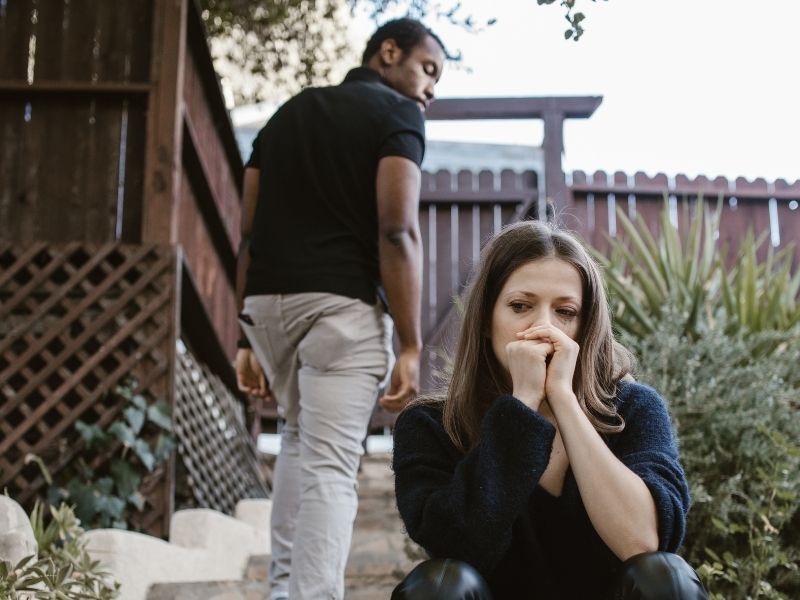Infidelity can shatter the foundation of even the strongest relationships. The pain, betrayal, and confusion it brings can leave both partners struggling to find their footing again. Couples therapy after infidelity can offer a path towards healing, understanding, and rebuilding trust. In this article, we will walk you through what to expect during the process of couples therapy after infidelity, helping you navigate this challenging journey toward a healthier relationship.
What To Expect In Couples Therapy After Infidelity
Infidelity can profoundly shake the foundation of a relationship, leaving couples grappling with a complex web of emotions, mistrust, and uncertainty. When a couple decides to embark on the path of couples therapy after infidelity, they are taking a significant step towards healing and rebuilding their relationship. In this article, we will explore the journey of couples therapy after infidelity, shedding light on what couples can expect throughout this transformative process.
Understanding Infidelity in Relationships
Infidelity, often described as a breach of trust, occurs when one or both partners engage in romantic or sexual interactions outside the boundaries of their committed relationship. The discovery of infidelity can trigger a range of intense emotions such as anger, betrayal, sadness, and confusion. It’s crucial to recognize that infidelity is a symptom of underlying issues within the relationship, rather than the issue itself.
The Decision to Seek Couples Therapy
The decision to seek couples therapy after infidelity is a pivotal moment that requires careful consideration. Couples may find themselves at a crossroads, uncertain about whether to salvage the relationship or part ways. The realization that therapy is needed signifies a willingness to confront the challenges head-on and work towards resolution.
Finding the Right Therapist
Choosing a therapist who specializes in infidelity-related issues is a crucial step towards effective therapy. A qualified therapist provides a safe and supportive environment for couples to explore their feelings and concerns. When selecting a therapist, consider their experience, credentials, and approach to infidelity counseling.
Initial Sessions: Navigating Turbulent Waters
The initial sessions of couples therapy can be emotionally charged as couples begin to address the painful aftermath of infidelity. Tensions may run high, and communication might be strained. The therapist’s role during this phase is to facilitate open dialogue, ensuring that both partners have an opportunity to express their feelings.
Opening Up About Infidelity
Discussing the details of infidelity within the therapy setting is a crucial yet challenging step. This process requires vulnerability and active listening. Partners must navigate a delicate balance between sharing their emotions and avoiding further harm. The therapist helps create a structured and respectful space for this sensitive conversation.
Rebuilding Trust and Communication
Rebuilding trust is a cornerstone of couples therapy after infidelity. Therapists guide couples through exercises and conversations aimed at restoring trust and enhancing communication. Partners learn to communicate their needs, fears, and expectations more effectively, fostering a deeper understanding of each other.
Managing Negative Emotions
The therapy journey often involves managing a rollercoaster of negative emotions. Partners may grapple with anger, resentment, guilt, and even shame. Through individual and joint sessions, couples gain tools to manage these emotions constructively and prevent them from derailing the healing process.
Individual Growth and Healing
Couples therapy after infidelity is not only about repairing the relationship but also about individual growth. Partners embark on a journey of self-discovery, exploring their own needs, values, and aspirations. This personal development contributes to a stronger foundation for the rekindled relationship.
Coping with Triggers and Flashbacks
During therapy, couples will confront triggers and painful memories that can resurface unexpectedly. These moments may evoke intense emotional reactions. Therapists introduce coping strategies to manage these triggers, helping partners navigate them with empathy and understanding.
Intimacy and Intimacy-Building Exercises
Infidelity can deeply impact intimacy within a relationship. Couples therapy addresses this by incorporating intimacy-building exercises. Partners learn to reignite the emotional and physical connection, fostering a sense of closeness that may have been compromised.
Forgiveness and Moving Forward
The concept of forgiveness takes center stage as couples progress in therapy. Forgiveness does not imply condoning the infidelity but rather releasing the hold it has on the relationship. Moving forward involves letting go of resentment and embracing the potential for a renewed connection.
Addressing Relapses and Setbacks
Therapy is not immune to setbacks and relapses. Couples may find themselves slipping into old patterns despite progress. These moments are opportunities for growth, emphasizing the need for patience, resilience, and a commitment to the therapeutic process.
The Road to Recovery and Reconnection
As therapy unfolds, couples begin to witness positive shifts in their relationship dynamics. Gradually, they experience improved communication, renewed trust, and a sense of reconnection. The journey is unique for each couple, guided by their willingness to invest time and effort.
Conclusion
Couples therapy after infidelity is a challenging yet transformative journey that holds the promise of healing and growth. By choosing to confront the aftermath of infidelity through therapy, couples can rebuild trust, foster deeper intimacy, and forge a path towards a more resilient and fulfilling relationship.
FAQs About Couples Therapy After Infidelity
1. Is couples therapy effective after infidelity? Couples therapy has shown significant effectiveness in helping couples navigate the challenges of infidelity and rebuild their relationship.
2. How long does couples therapy usually last? The duration of couples therapy varies, but it often ranges from a few months to a year, depending on the specific needs of the couple.
3. Can therapy prevent future infidelity? While therapy can address underlying issues, preventing future infidelity ultimately depends on the commitment and efforts of both partners.
4. Is forgiveness necessary for healing after infidelity? Forgiveness can contribute to healing, but it’s a complex process that varies for each individual and couple.
5. What if my partner is unwilling to attend therapy? Individual therapy can still be beneficial, as it allows you to process your emotions and make decisions about the relationship.







